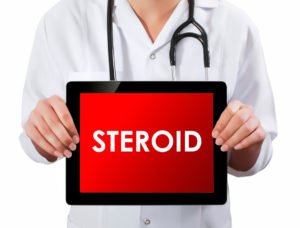
Human Growth Hormone, or HGH, can be your key to long term weight loss!
It doesn’t take a physician to tell you that the best way to manage your weight is to eat a balanced, healthy diet and to exercise. Fad diets and quick weight loss schemes may work for a while, but most people “yo-yo,” only to put the weight back on again. That is because the key to long-term weight loss is reducing fat and building muscle.
This is why most diets fail. If you reduce your caloric intake too much, your body goes into “starvation mode.” Your body cannot build muscle when it is in “starvation mode.” On the other hand, muscle craves fuel, muscle burns calories – even when you are at rest. That is where HGH or human growth hormone, comes into play. Human growth hormone is essential for building lean muscle. Increased muscle mass stimulates further production of HGH. It is a two-way street that adds up to not only long-term weight loss but a healthier lifestyle overall!
HGH, Weight loss, and Metabolism
I hear it all the time, “I practically starve myself, and yet I cannot lose enough weight!” “Starve,” is the right word. If you reduce your caloric intake too low, your body does go into “starvation mode.” In starvation mode, your metabolism slows down. Thinking it needs to do so to keep you alive, your body will want to store fat and will break down muscle. That is no way to diet! You want to increase your muscle mass and reduce your body fat!
The more muscle you have, the more calories you burn even when resting. The more HGH you have, the more muscle you can build. High-intensity workouts have been shown to not only burn calories, and increase muscle mass, and they increase production of HGH. That’s why HGH is often referred to as the “fitness hormone.”
Human growth hormone, or HGH, is responsible for the growth of all the cells of your body. HGH is particularly important to the growth of muscle tissue. HGH stimulates your muscles to create new fibers and new cells. In the presence of high HGH, you will grow bigger, stronger muscles, in a shorter amount of time. Those bigger stronger muscles will help you to lose fat, and keep it off!
Growth Hormone, Aging and Quality of Life
In addition to helping you burn fat and build lean muscle, there are many other “anti-aging” benefits of HGH. HGH is your body’s most important hormone. Human Growth Hormone is responsible for stimulating the growth, healing, and renewal of all the cells in your body. When you are young, HGH is necessary so you can grow and mature from a child to an adult. In your youth, HGH levels are at their highest.
But, even as adults, HGH still plays a vital role in renewing and repairing every cell in your body. Even though you still need HGH, your production of HGH does slow down over time. Levels of HGH begin to drop most significantly as you reach middle age.
Before adolescence, your HGH level is so high, that anytime a cell dies, or is damaged, it is quickly and easily repaired or replaced. When you reach middle age, however, that is not the case. Cells die, get used up, and are not so readily replaced. We feel “older,” weaker, worn out – but what we are really experiencing is lower levels of HGH.
Declining levels of HGH can contribute to fatigue, weight gain, loss of muscle mass, and loss of bone density, poor sleep, and even sexual issues – all of the things we normally attribute to “aging.” HGH optimization therapy can:

- Rejuvenate and revitalize every cell in the body
- Aid in fat loss, weight reduction, and muscle gain
- Help your body heal faster, and boost your immune system
- Return your energy to more youthful levels
- Improve your overall quality of life
See Related Article: Can HGH Help with Weight Loss?
However, the only way to obtain real growth hormone is with a doctor’s prescription. Any product you see online or in a “muscle magazine,” that claims to be HGH, cannot by law, contain any growth hormone. If you want to achieve the many proven benefits of authentic growth hormone therapy, contact us today for your free evaluation of your hormone levels.
Call or text (305) 682-1818 or complete a Free Consultation Form






